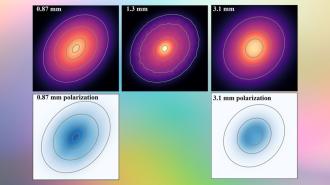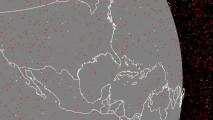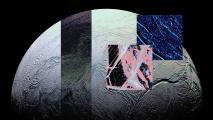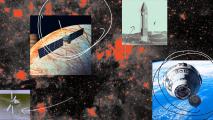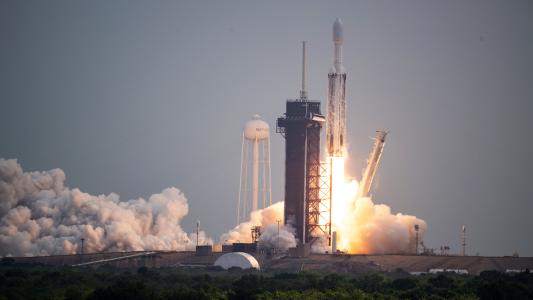Baby star reveals new phase of planet formation for the first time
For the first time, astronomers have discovered a newborn star that has everything needed to form planets, but has yet to actually begin the process — revealing a previously unknown phase of planet formation.
The challenge: Studying planet formation in other solar systems could help us understand how Earth came to be — and why it hosts life. But planets don’t form over night. It took an estimated 600 million years for our solar system to emerge from a cloud of dust and gas.
That means scientists can’t exactly just watch as planets develop around a young star. Instead, they look for solar systems in different stages of formation and piece together an understanding of the whole process based on those observations.
While they’d discovered plenty of stars with planets forming around them, they’d yet to see any baby stars before the swirling mix of gas and dust in their protoplanetary disks had already started to clump together — the first stage of planet formation.

No planets here: An international team led by astronomers at the National Astronomical Observatory of Japan (NAOJ) believes it has finally identified a star in this pre-planetary formation stage.
This star, DG Taurus, is 410 light-years away, and based on observations from the Atacama Large Millimeter/submillimeter Array (ALMA) in Chile, its protoplanetary disk is still smooth, with no signs of the ring-like patterns that would indicate the beginning of planet formation.

A surprise: The NAOJ team estimated the size of the dust particles in different parts of DG Taurus’s disk and determined that the dust in the outer part of the disk — farthest from the star — is larger, suggesting that planets are likely to form in that region first.
This contradicts current theories about planet formation, which predict that it begins in the part of the disk closest to a star, and shows how studying DG Taurus could improve our understanding of how planets come to be.
We’d love to hear from you! If you have a comment about this article or if you have a tip for a future Freethink story, please email us at [email protected].
